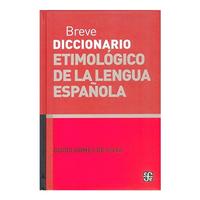11 - La raíz de la palabra “infante”
|racine||||enfant
|root||||infant
11 - Die Wurzel des Wortes "Säugling".
11 - The root of the word "infant"
11 - La racine du mot "enfant".
11 - La radice della parola "bambino".
11 - žodžio "kūdikis" šaknis.
11 - Корень слова "младенец".
LOCUTORA
SPEAKER
A ver si sabes, amigo.
Let's see if you know, friend.
Y si no sabes, te lo digo.
And if you don't know, I'll tell you.
¿Qué significa la palabra “infante”?
What does the word "infant" mean?
HOMBRE
¿Infante?
Infant?
Infante es lo mismo que niño.
Infant is the same as child.
LOCUTORA
SPEAKER
Sí, pero, ¿de dónde viene la palabrita?
||||||little word
Yes, but where does the word come from?
LOCUTOR
“Infante” quiere decir
"Infant" means
“el que no fona”,
|||"ne sonne pas"
||no|calls
"He who does not sound",
“el que no habla”.
"He who does not speak."
LOCUTOR
Así empezó a llamarse a los bebitos
|||to be called|||babies
That's how the babies began to be called
cuando todavía no habían aprendido a hablar.
|still|||learned||
when they had not yet learned to speak.
Pero crecieron y siguieron sin palabra propia.
|they grew||they followed|||
But they grew up and continued without their own word.
Les ordenaron silencio.
|ont ordonné|
|They ordered|silence
They ordered silence.
HOMBRE
¡Cállate!
Shut up
Shut!
LOCUTOR
Los adultos hablan,
The adults speak,
los niños y las niñas callan y obedecen.
||||girls|be quiet||obey
boys and girls shut up and obey.
Infante.
Infant
De ahí viene también “infantería”.
||||infantry
Hence also comes "infantry."
Los soldaditos que no tienen que pensar ni opinar.
|little soldiers|||||||to think
The little soldiers who don't have to think or think.
Los que obedecen órdenes estúpidas de matar y morir.
|||orders|stupid||||
Those who obey stupid orders to kill and die.
LOCUTORA
La raíz de las palabras.
The root of the words.
Una producción de Radialistas Apasionadas y Apasionados.
|||Radialists|Passionate||Passionate
A production of Radialistas Apasionadas y Apasionados.
Envíanos el significado de otras palabras a radialistas@radialistas.net
|||||||||net

